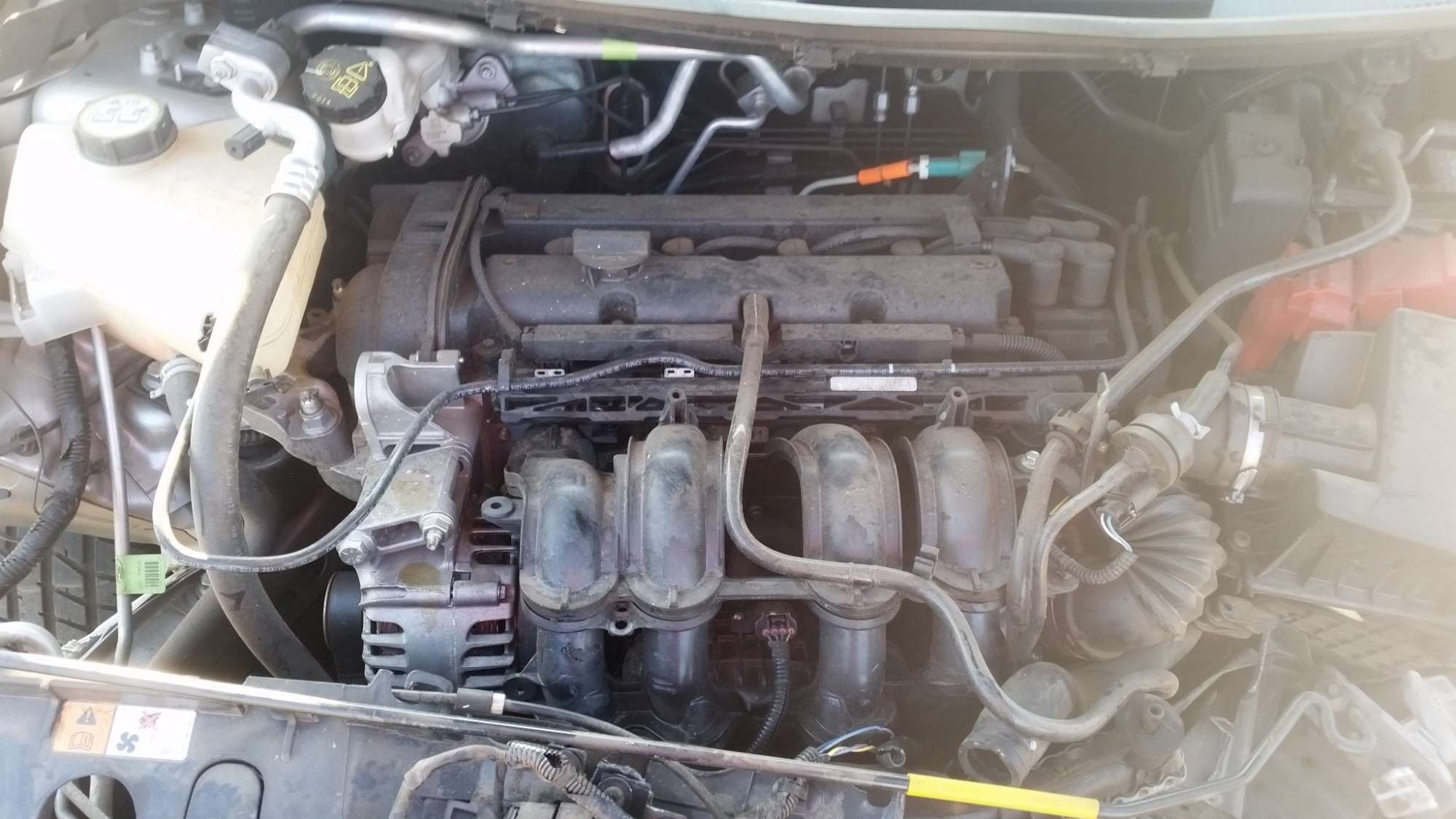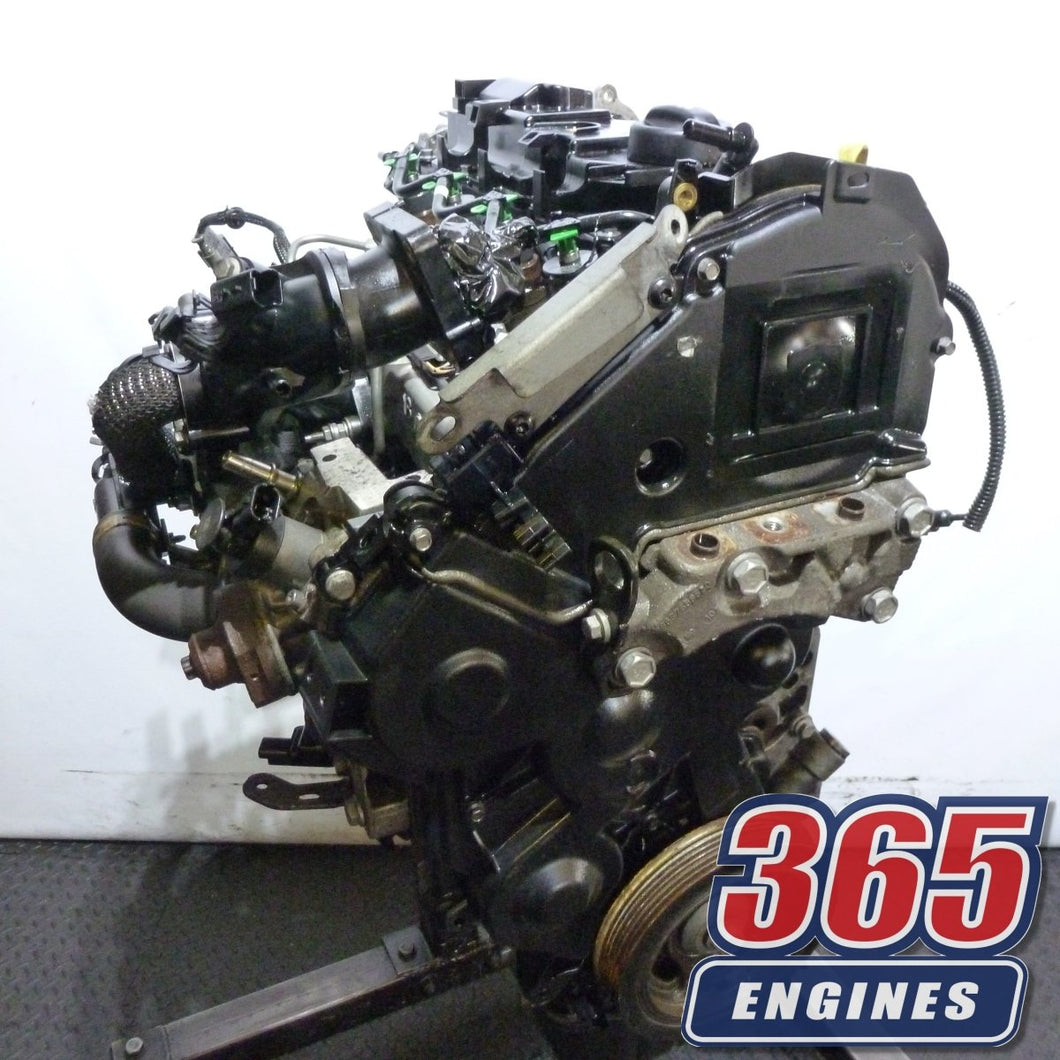Get the Most Out of Your Ford Fiesta Engine with Proper Care
Get the Most Out of Your Ford Fiesta Engine with Proper Care
Blog Article
The Future of Engines: Developments Driving Sustainable Power Solutions
As the automobile sector navigates the critical transition in the direction of sustainability, the future of engines is progressively defined by groundbreaking developments. Electric engine improvements, alongside encouraging developments in hydrogen fuel cells and biofuels, are reshaping the landscape of power services.
Electric Engine Advancement
The evolution of electric engine developments represents an essential shift in the aerospace and vehicle markets, driven by the immediate requirement for sustainable choices to nonrenewable fuel sources. This change is identified by substantial developments in battery modern technology, power electronic devices, and electrical motor design, which collectively boost the efficiency and performance of electric engines.
Current innovations have brought about the production of lighter, a lot more energy-dense batteries, such as lithium-silicon and solid-state batteries, which guarantee longer varieties and shorter charging times. Additionally, enhancements in electric motor performance, such as using irreversible magnets and advanced cooling systems, enable electric engines to run effectively under varying conditions. These improvements not only improve car performance yet likewise contribute to a reduction in total power usage.
Furthermore, the assimilation of sophisticated software algorithms has actually enhanced power monitoring in electric lorries, permitting regenerative braking and anticipating charging approaches. As makers increasingly accept electric propulsion, the automotive and aerospace industries are experiencing a standard change towards greener modern technologies. This development not just fulfills governing demands yet also aligns with customer choices for eco-friendly transportation remedies, solidifying electrical engines as a cornerstone of future sustainable mobility.
Advancements in Biofuels
As the aerospace and automotive markets significantly prioritize lasting power sources, developments in biofuels emerge as a complementary option to electrical engines. Biofuels, originated from natural products such as crops, waste, and algae, provide a cutting-edge opportunity for reducing greenhouse gas discharges and dependence on nonrenewable fuel sources.
Current research has actually concentrated on enhancing the effectiveness and sustainability of biofuel manufacturing. Second-generation biofuels make use of non-food feedstocks, reducing competitors with food supply and lowering environmental impact. Advancements in synthetic biology have allowed the engineering of bacteria to create biofuels much more effectively, leading to higher returns and reduced production prices.
Additionally, the development of drop-in biofuels allows for smooth integration right into existing framework, making it possible for a smoother transition for markets generally based on nonrenewable fuel sources. ford fiesta engine. These gas can be used in present engines without modifications, facilitating their adoption across different sectors
Investments in biofuel modern technology, along with supportive plans, are vital to drive innovation and scalability. As the worldwide neighborhood seeks to combat environment modification, biofuels supply a pragmatic, prompt solution that straightens with the overarching goal of sustainability in transport and air travel.
Hydrogen Gas Cell Modern Technology
An expanding variety of companies and researchers are discovering hydrogen fuel cell technology as a viable option to conventional power resources in transportation and power systems. This innovation converts chemical power from hydrogen into electrical power via an electrochemical response, with water as home the only by-product, making it an eco friendly option.
The core of hydrogen gas cells is the fuel cell stack, where hydrogen molecules are split right into electrons and protons. The circulation of electrons generates electrical energy, while protons relocate via a membrane to incorporate with oxygen from the air, forming water. This procedure causes high efficiency and reduced emissions, positioning hydrogen fuel cells as a vital gamer in the shift to lasting energy.
Considerable developments have been made in boosting the sturdiness and performance of fuel cells, along with reducing expenses with innovative production techniques. The growth of hydrogen production approaches, such as electrolysis powered by sustainable power resources, improves the sustainability of the total system. As framework for hydrogen refueling expands and manufacturing approaches become a lot more reliable, hydrogen gas cell technology holds excellent promise for decarbonizing various markets, consisting of sturdy transportation and fixed power generation.
Crossbreed Equipments and Their Influence
Hybrid systems stand for a substantial advancement in lasting engine modern technology, merging typical inner burning engines with electric propulsion to enhance power performance and minimize discharges (ford fiesta engine). This dual strategy permits vehicles to use both power sources, allowing higher versatility in energy intake and minimizing dependence on fossil gas

In enhancement to environmental advantages, crossbreed systems supply consumers a feasible transition in the direction of fully electric vehicles. They reduce array stress and anxiety by incorporating the ease of gas with the benefits of electric propulsion, making them an eye-catching option for a larger audience.
The Duty of AI in Engine Style
Leveraging innovative algorithms and artificial intelligence strategies, the automobile sector is increasingly integrating expert system (AI) right into engine design processes. AI boosts the effectiveness and effectiveness of style by evaluating substantial datasets to identify optimal setups and efficiency parameters. This capability enables engineers to simulate different operating conditions and predict engine habits under several situations, considerably minimizing the time and expense connected with traditional prototyping techniques.
Additionally, AI promotes the advancement of sophisticated products and burning procedures customized for sustainability. By maximizing gas performance and reducing discharges, AI-driven styles align with global initiatives intended at lowering the carbon impact of vehicle engines. Artificial intelligence formulas can also predict upkeep demands, causing boosted integrity and long life of engine parts.
In you can look here Addition, AI is critical in the integration of electrification modern technologies, such as crossbreed systems, where it can maximize battery monitoring and power recuperation procedures. As the market moves in the direction of even more sustainable power options, the read this function of AI in engine style becomes significantly crucial, driving technology and boosting the efficiency of future engines. Ultimately, the collaboration in between AI and engine design declares a new period of smarter, cleaner, and a lot more effective automotive modern technologies.

Final Thought
In final thought, the future of engines is being shaped by a convergence of innovative modern technologies that focus on sustainability. Electric engine developments, biofuel growths, hydrogen fuel cells, and crossbreed systems collectively contribute to a considerable decrease in exhausts and ecological impact.
Electric engine advancements, together with appealing growths in hydrogen gas cells and biofuels, are improving the landscape of power options. Additionally, improvements in electric motor efficiency, such as the use of long-term magnets and advanced cooling systems, allow electric engines to operate efficiently under varying problems. By optimizing gas performance and lessening emissions, AI-driven styles line up with worldwide campaigns aimed at reducing the carbon footprint of auto engines. As the industry moves towards even more sustainable power remedies, the duty of AI in engine design becomes progressively essential, driving technology and enhancing the performance of future engines. Electric engine innovations, biofuel growths, hydrogen fuel cells, and hybrid systems collectively add to a considerable reduction in exhausts and environmental effect.
Report this page